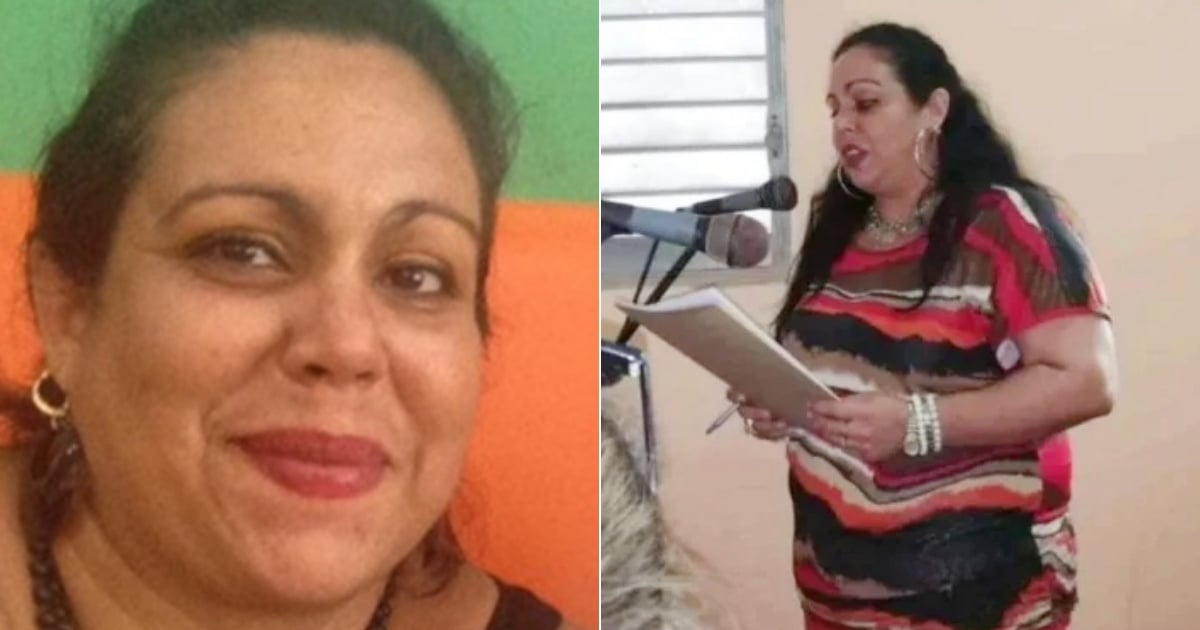Former Cuban judge Melody González Pedraza, once a key figure in Cuba's judicial system, has been denied asylum by the U.S. government and faces deportation. The decision was confirmed by Martí Noticias, citing the automated system of the Executive Office for Immigration Review (EOIR) as its source.
On May 21, 2025, an immigration judge in Pompano Beach, Florida, handed down the decision after a year-long contentious legal battle regarding her immigration status. According to EOIR records, González Pedraza has no future hearings scheduled, and the deadline to appeal to the Board of Immigration Appeals (BIA) is June 20.
Community Reaction: A Call for Justice
The deportation order has been met with relief by victims of judicial repression in Cuba, some of whom now reside in the United States. "Justice has been served in this great country for the victims of Melody González, both in Cuba and here," declared activist Samuel Rodríguez, a former victim of González, now living in the U.S. In a live broadcast, Rodríguez expressed skepticism about González's chances of a successful appeal.
A History of Political Repression
González Pedraza served as a criminal judge in Cuba, where she allegedly participated in politically motivated trials lacking due process, as noted by international human rights organizations. Media reports and exiled groups accuse her of acting under the Cuban State Security's directives, delivering verdicts in politically charged cases.
Some exiled Cuban politicians have accused her of judicial misconduct, asserting that her courtroom decisions supported institutionalized repression. Upon arriving in the U.S., González sought asylum, claiming fear of persecution if returned to Cuba. However, her past associations with the regime have led to widespread rejection from the Cuban exile community and advocates for transitional justice.
Legal Proceedings and Future Steps
Despite the deportation order, González still has the legal option to appeal. If she chooses not to or if the appeal fails, she will either have to leave the U.S. voluntarily or face forced deportation. Attorney Wilfredo Allen, quoted by Martí Noticias, noted that González would have no legal recourse to remain in the U.S. if her appeal is unsuccessful.
This case highlights a growing trend of former Cuban regime officials seeking refuge in the U.S. while concealing their involvement in human rights abuses. Such revelations have increased the pressure on U.S. immigration authorities to enforce stricter measures, preventing those complicit in Cuba's oppressive system from exploiting the protections of the American democratic system.
FAQs on Melody González's Asylum Denial
Why was Melody González denied asylum in the United States?
Melody González was denied asylum due to her past involvement in Cuba's judicial system, where she allegedly participated in politically motivated trials that violated human rights.
Can Melody González appeal the deportation decision?
Yes, González has the option to appeal the decision to the Board of Immigration Appeals before the deadline of June 20, but if unsuccessful, she faces deportation.
What has been the reaction of the Cuban exile community?
The Cuban exile community has largely welcomed the deportation order, viewing it as justice for the victims of González's judicial actions.
